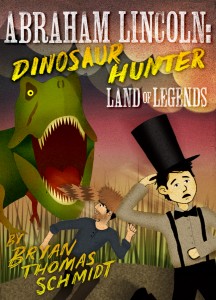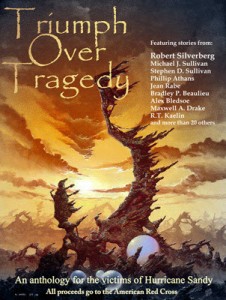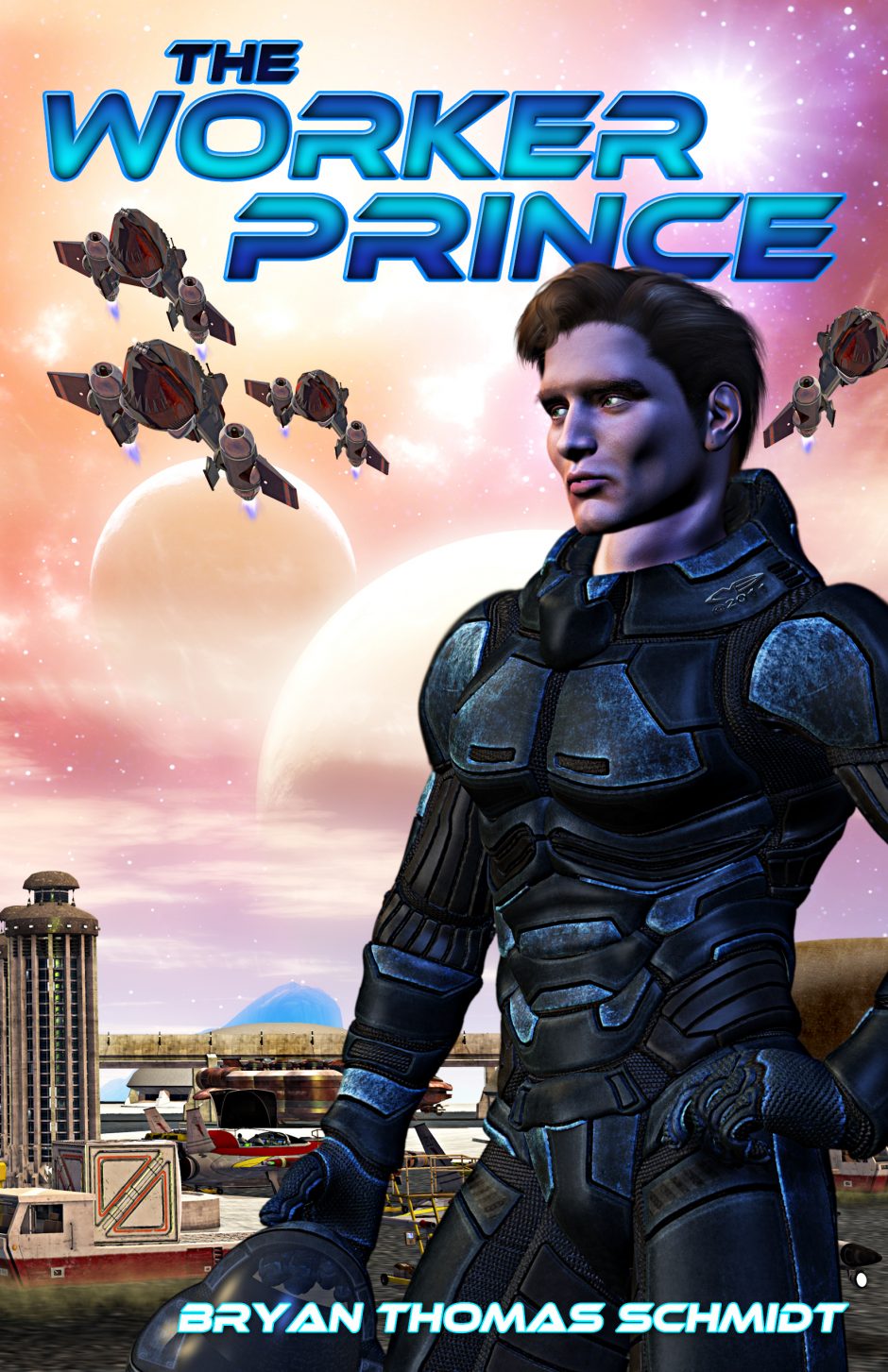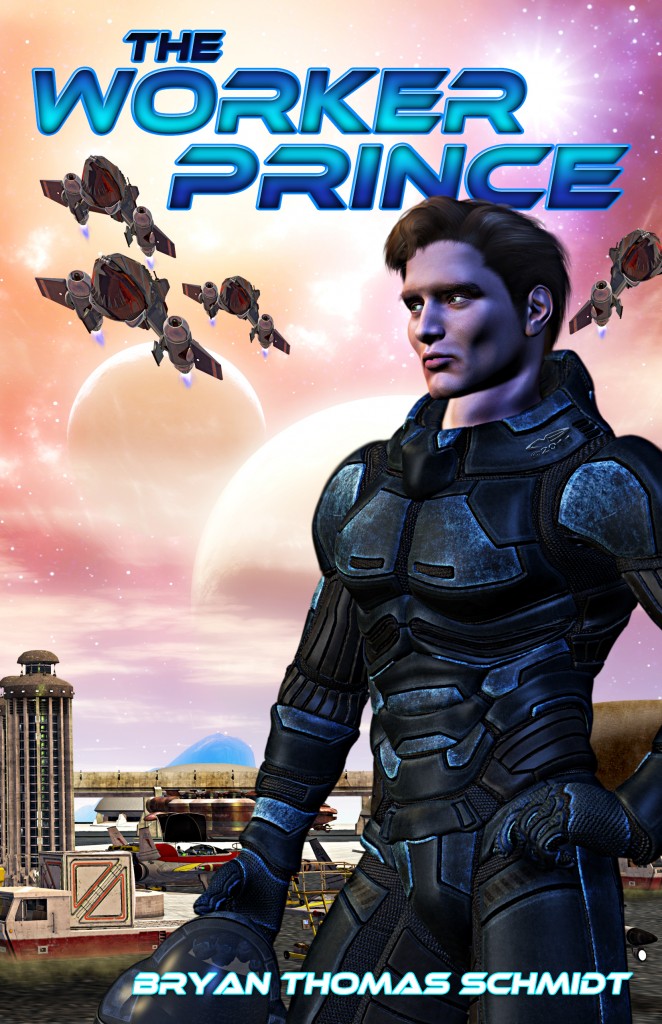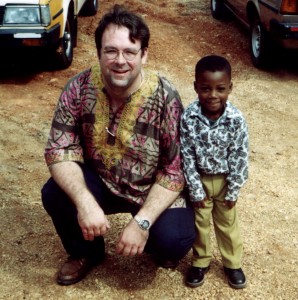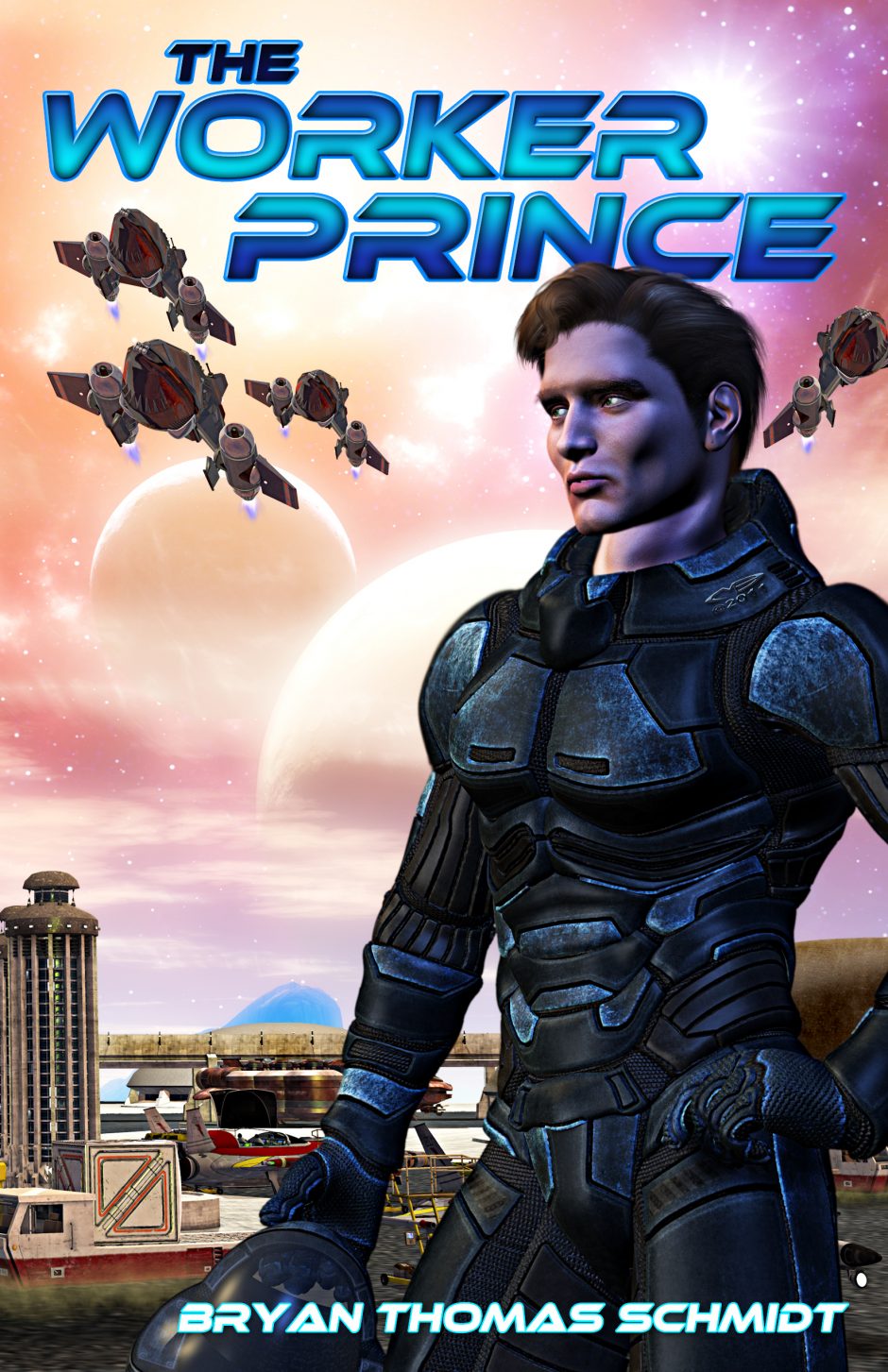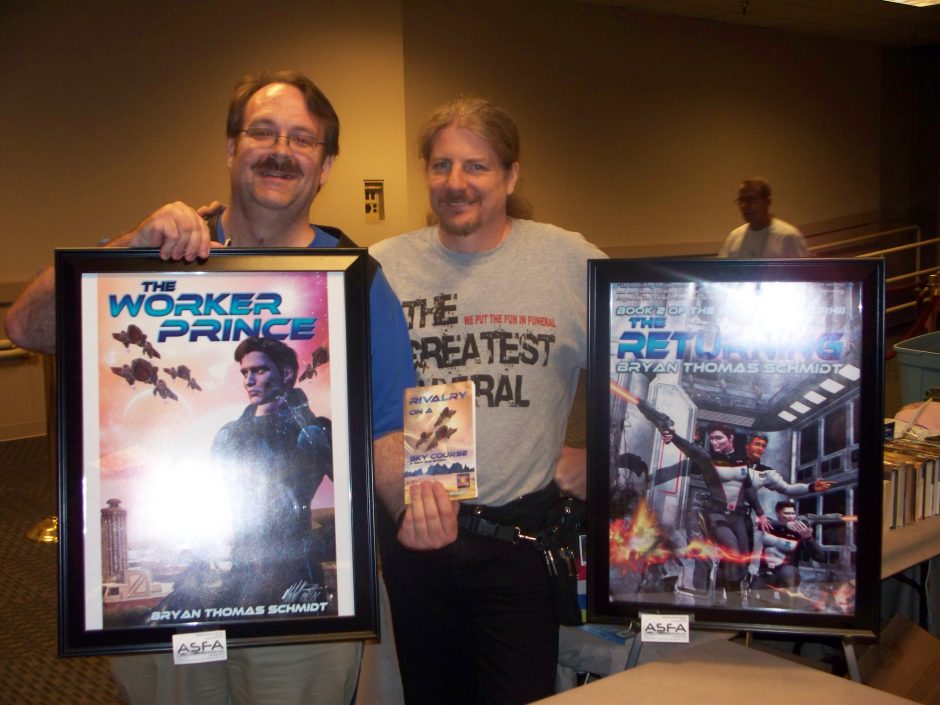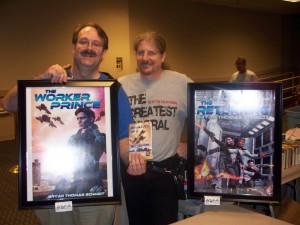 I once had a fortune cookie which read: “Some good things will happen, but there will be bad, too.” I thought: now there’s a writer who’s afraid of risks. Seriously. They covered all their bases and what was the result? A pretty unsatisfying fortune. I mean, I knew that already. Where’s the excitement in that? What do I have to anticipate? More of the same.
I once had a fortune cookie which read: “Some good things will happen, but there will be bad, too.” I thought: now there’s a writer who’s afraid of risks. Seriously. They covered all their bases and what was the result? A pretty unsatisfying fortune. I mean, I knew that already. Where’s the excitement in that? What do I have to anticipate? More of the same.
I mention this because this is an important lesson for all of us who write: to write with an impact, you must take risks. Seriously.
How many times have you read something and thought: ‘I’ve seen this before’ or ‘how cliche?’ We’ve all been there, right? I think this occurs most often because writers play it safe. They’re afraid to take risks.
Although I’ve gotten really good notices for my debut novel, The Worker Prince, I did get some criticisms. Among them were comments suggesting I could have been more innovative at times. Even the reviewer who listed me Honorable Mention on his Barnes & Noble Book Clubs Years Best SF Releases for 2011 said this. So I challenged myself in The Returning, sequel to The Worker Prince, accordingly. The first book got notices for its complicated plotting. But in book 2, I wanted to step it up a notch and really surprise readers and myself. The fact that I succeeded seems obvious from the fact that as I went back into the manuscript after two months away to edit it, I found myself surprised at plot points I’d forgotten. ‘I didn’t remember doing that! Cool!’ is a good reaction for you to have to your own stuff. It’s even better, of course, when readers react that way. After all, we’re often so close to our own work, we can’t be subjective. Setting aside a manuscript and not looking at it for two months really does help though, but still, the final test remains what will readers/reviewers think?
Not that I’m suggesting we write for readers and reviewers. You can’t do that. But once you put a book out there, that piece of your heart, that part of you, it becomes part of a community who read it, and their interactions with it and responses to it become valid measures of its success, good or bad. That’s all the more reason why taking risks is so vital. We’ve all heard the saying: there’s no new plots, only old ones told in new ways. In Science Fiction and Fantasy, in particular, this is a common quote. And you’ll often find it true. But being original in your basic plot isn’t what gives your book the “Wow!” factor. It’s the approach you take which does that and that’s where risk taking can really pay off.
What are some risks you can take? Here’s a few examples:
1) Kill A Character—we all hate to “murder” our babies. (It’s a good thing to hate, I’m not arguing.) But it’s important to remember, these are fictional beings, not real ones. And sometimes what’s best for the story is what’s worst for them. Bad things have to happen to your characters to keep your story interesting, to raise the stakes. Otherwise, you’re setting readers up for a pretty bland read. So sometimes, killing characters, especially ones readers love, is a great way to add new energy to your story and the character dynamics of those who remain and surprise readers with unexpected twists and turns. In The Returning, the death of characters transforms the story, changing the course of other characters’ lives as well as the conflicts faced by the world itself.
2) Switch Genders—have a character who might fill a traditional role, such as male sidekick to male hero, be female instead or vice versa. You can develop all kinds of unexpected interactions and chemistry from that alone. For example, what if the traditional spiritual advisor to the king in your fantasy was a woman? So often we see that role as a man, a sorcerer or a priest. By making it female, new dynamics come into play. The male/female dynamics which now have a role allow you to examine gender roles in your world. What would the queen or other women think of this woman’s power? How does it affect their relationships? Those are just two examples of the dynamics which might come into play as a result.
3) Use A Non-Traditional Setting—Ken Scholes did this exceptionally well with his Psalms Of Isaak which has a mix of traditional epic fantasy setting elements and postapocalyptic SF elements (swords and bows, blacksmiths, horses, metal men, desert, sand, ruins, etc.) By setting his epic fantasy story in such a milieu, he keeps it fresh and fasncinating, even when familiar elements appear. And the furthermore, the setting encourages risk taking how he uses any traditional elements, including magic.
4) Do The Opposite Of Instinct—if your first thought is to do one thing, search for something else. Often our mind goes to the most familiar or obvious first, but the search turns up more interesting options. For example, in deciding about killing a character, I had to choose between a likable character and one who was more challenging for readers. I chose to kill the likable character because the ideas I had to further develop him were less interesting and his death created all kinds of dynamics for the hero and less likable character to work through. It just made sense. Both of them have dramatic arcs as a result of the death, whereas killing the less likable character would have actually removed tension.
5) Take Unique Approaches To Themes—Especially if you’re using oft-repeated themes (and let’s face it, so many of them are), it’s important to look for a new angle. What hasn’t been done or done the way you do it? Thematic elements add depth and wholeness to your fiction, but they can also be cliche, which makes it important to find ways to infuse your thematic elements with a freshness. For example, the Moses story which inspired The Worker Prince is about slavery, and to me, a big part of that was founded on ideological bigotry, so when I wrote the book, even though my main goal was to provide a rip roaring old fashioned space opera adventure, I worked in themes dealing with ideological differences and used real world religion as an example of how our own egos can lead us to judge ourselves better than those who don’t share our ideals. It can be a very subtle thing we don’t even realize we’re doing. But what if we did it so much it became normal and grew larger and larger? Could we really believe others are not equal to use as human beings as a result? Would we actually enslave them? It’s an approach I hadn’t seen taken to the story before, and so far reader response has been positive. Ironically, using Christianity as a real religion in my book, even though it’s not preachy or trying to push religion on anyone (their words) was a risk. I’ve had a few people who shy away from the book because of it. Ironically, those people often admit if I’d written it as Christianity but called it something else, they would have been fine. So there’s two examples of risk in regards to themes. (For more on Themes, click here.)
I’m sure you can think of plenty of other examples. Please share them the comments so we can all learn.
My point is that risks are what keep your writing fresh and unpredictable not just for readers but for you. And the result of having to make risky or unexpected choices is being led to unexpected places in your character arcs and plotting. These, in turn, pull more out of you and push you in ways you’d never have been pushed. The result is a better book and you becoming a better writer. Recently I saw a friend’s debut novel get slammed by some reviewers who focus on fantasy. The reason? They said it was too much like what they’d seen before; too predictable; not risky. I’ve read the book and enjoyed it far more than they did, but how would you feel if this happened to you? I’m sure my friend’s next book will be far riskier in many ways. The reviews will push him to strive harder and think more about his choices and the result will be a better book.
We all have room for growth in our journey as writers. Where should you be taking more risks? When are you going to start? Beginning 2021 by taking some risks would be a great way to start, wouldn’t it? For what it’s worth…


 Diction and Dialect
Diction and Dialect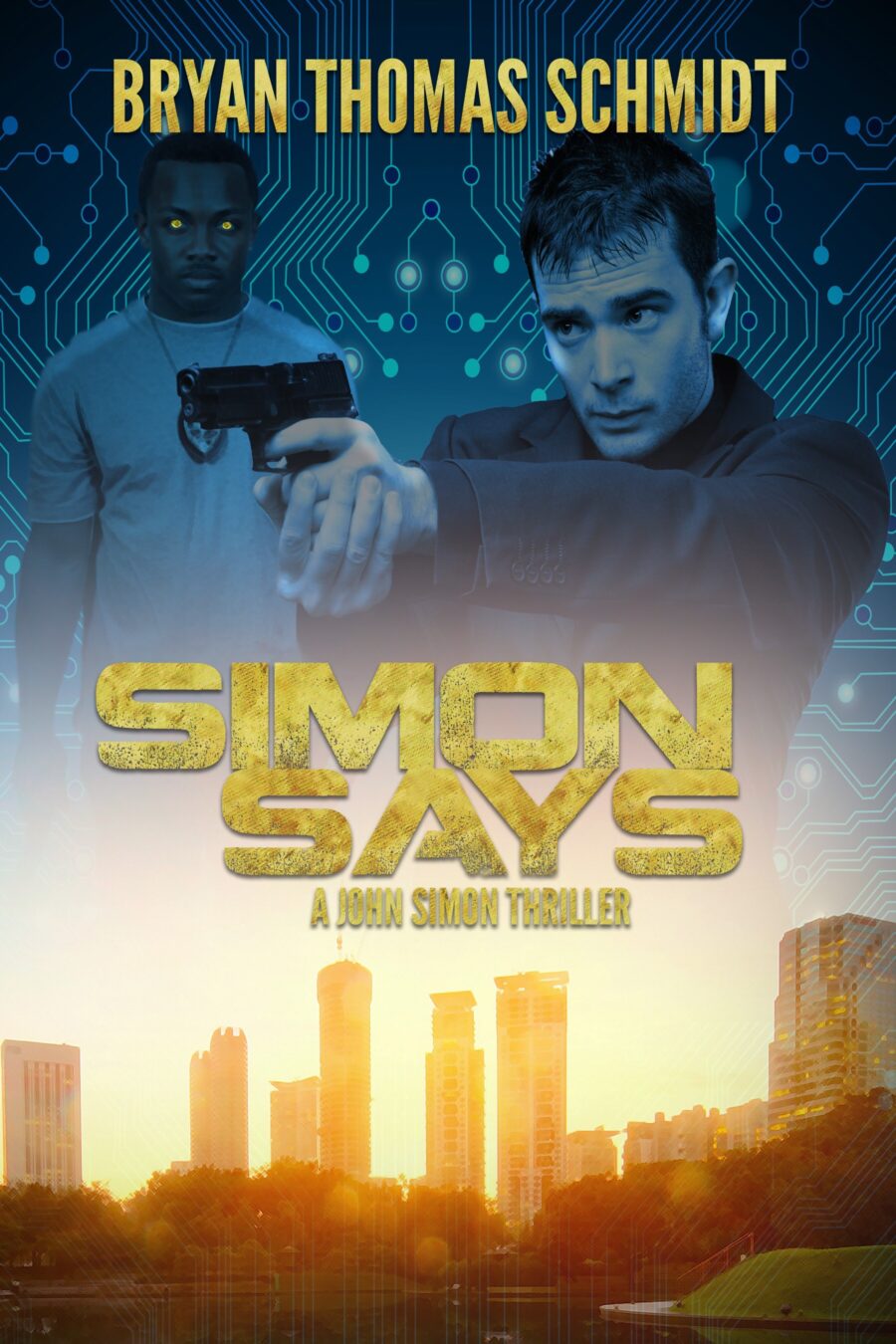 ["I function ninety percent like a human being in most respects," Lucas said as they continued up the stairs.
"Yeah, and at least ten percent is how you talk," Simon teased.
Lucas turned a puzzled look at him. "You think I do not speak like a human?"
"No normal human uses the cadence you use, no," Simon said.
Lucas looked disappointed. "Well, I hope you will assist me to do better. I am designed to blend in with humans and wish to learn."
"You want to blend stop saying things like 'in most respects' or 'I am designed,'" Simon said, shaking his head. "You sound like a machine."
Lucas hrmphed. "I will remember."
["I function ninety percent like a human being in most respects," Lucas said as they continued up the stairs.
"Yeah, and at least ten percent is how you talk," Simon teased.
Lucas turned a puzzled look at him. "You think I do not speak like a human?"
"No normal human uses the cadence you use, no," Simon said.
Lucas looked disappointed. "Well, I hope you will assist me to do better. I am designed to blend in with humans and wish to learn."
"You want to blend stop saying things like 'in most respects' or 'I am designed,'" Simon said, shaking his head. "You sound like a machine."
Lucas hrmphed. "I will remember." 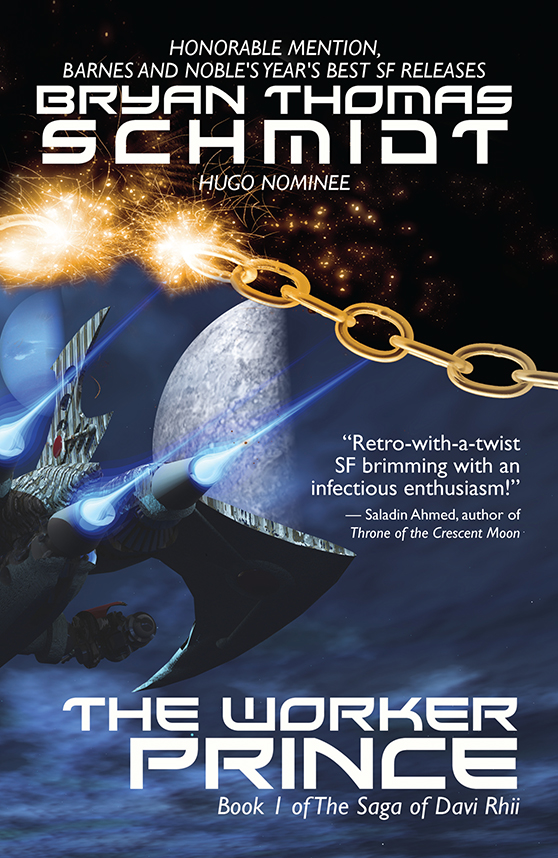 Here’s an example from my novel The Worker Prince:
Here’s an example from my novel The Worker Prince: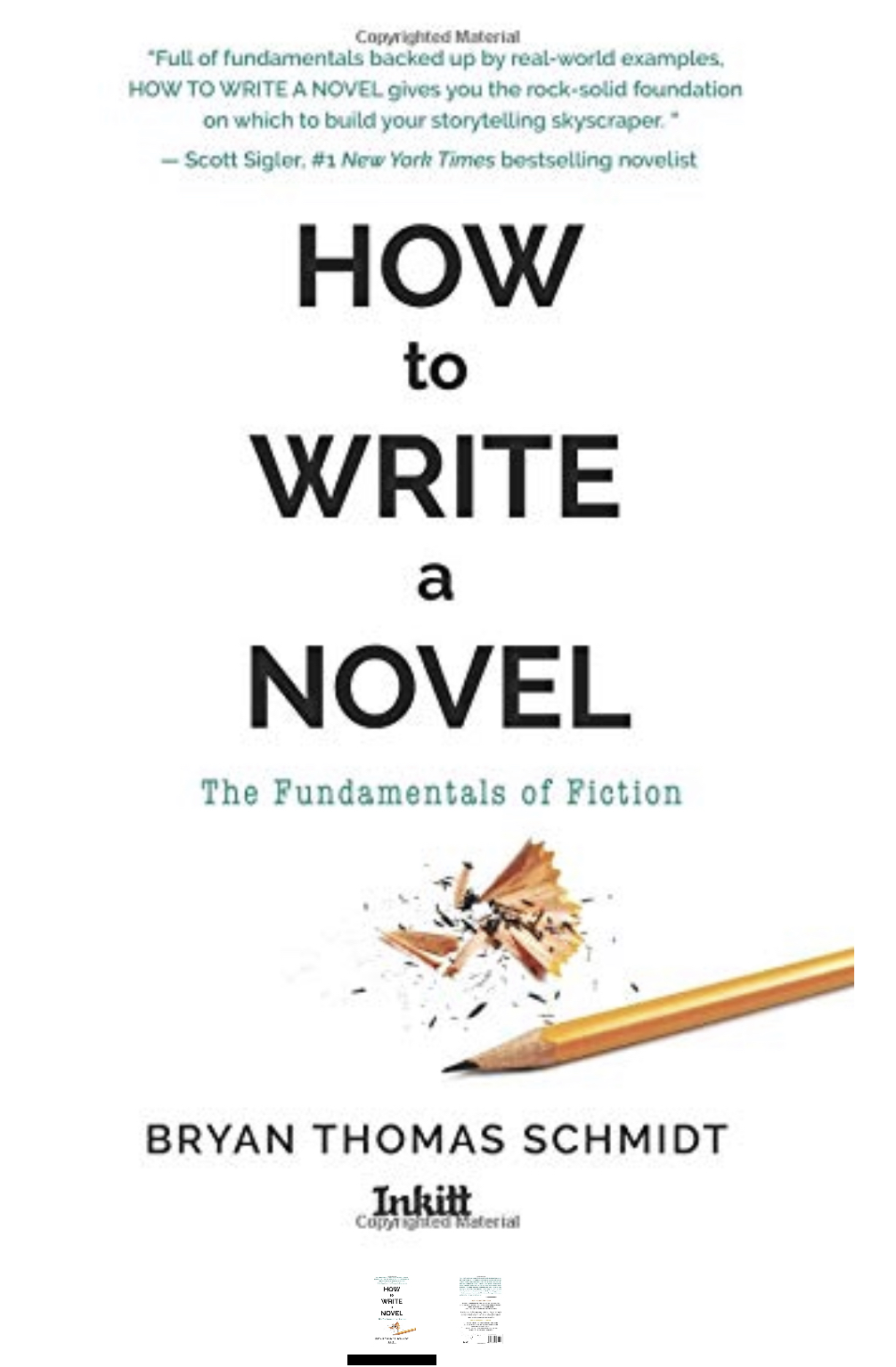 Remember that characters may speak differently to one character than another depending upon their relationship, their motives, etc. If hanging with old friends from the old ghetto, one may slip into a dialect left behind in childhood for those interactions even if the character usually speaks in a more refined way with characters outside that world and life. Ever have a friend from a foreign country or the U.S. Deep South who talks with one accent with you but goes home and slips back into a native accent? People speak to a lover different than a mother or a sister or a boss or a priest. One also speaks differently to a king or ruler than a fellow citizen and often to a teacher than fellow students, and so on. So remember to establish changes in dialogue appropriate to the circumstances in which the dialogue is occurring and who and to whom the characters are speaking. This will make your world come alive and feel realistic.
Remember that characters may speak differently to one character than another depending upon their relationship, their motives, etc. If hanging with old friends from the old ghetto, one may slip into a dialect left behind in childhood for those interactions even if the character usually speaks in a more refined way with characters outside that world and life. Ever have a friend from a foreign country or the U.S. Deep South who talks with one accent with you but goes home and slips back into a native accent? People speak to a lover different than a mother or a sister or a boss or a priest. One also speaks differently to a king or ruler than a fellow citizen and often to a teacher than fellow students, and so on. So remember to establish changes in dialogue appropriate to the circumstances in which the dialogue is occurring and who and to whom the characters are speaking. This will make your world come alive and feel realistic.